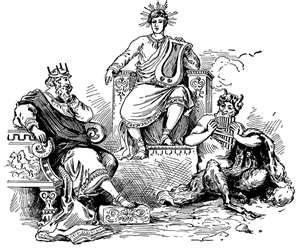I won’t lie. I like money. I would like to have more and if I did I could make investments to make even more. I’d love that.
I like my bank too. They are very nice and I think that if I had more money to put into my bank they would guide me wisely to protect and grow my investments.
investments.
I’ve been shaped by Capitalism. I like the motivation to create. I also like my job and I like my employers. I have many wealthy friends and I like them too!
You see, I have no problem with the accumulation of wealth or the lifestyle advantages wealth brings. Many people see the castle on the hill and that is what inspires them to work; that is the capitalist model that we have embraced.
But “Houston (Oakland, Seattle, New York, Chicago, Des Moines, and Detroit) we have a problem…”
Capitalism is not a perfect system. It started in the Middle Ages as Merchant Capitalism, but was never drawn from a plan as a flawless application of trade or the accumulation of capital in a fair and judicious manner. In fact, justice was never part of the equation. It grew because it worked in terms of motivating growth and creating productivity.
We are, by nature, driven to accumulate, but that can also create shades of greed. We  try (most of us) to suppress that part of us, but it is consistently revealed whenever we steal that extra cookie (literally and metaphorically).
try (most of us) to suppress that part of us, but it is consistently revealed whenever we steal that extra cookie (literally and metaphorically).
Capitalism exists today around the world as the principle economic alternative to Communism, and “Globalization” is the realization of the power of capital.
And so where does that leave me and my dreams of wealth? It leaves me with 90% of America. Stagnant.
The Congressional Budget Office released data that shows that the top 1% earners in America have more than doubled their share of the country’s wealth over the past three decades. That means that they not only increased their personal holdings, but did so at an exponential rate that increased their stake in the entire country by over 250%. In other words a population of about the size of Iowa controls over half the wealth.
“Good for them,” some might say, “that’s how the system works.”
Is it?
The wealthy in America have been winning the public’s heart for decades, yet to hear the conservative side talk, you’d think they were in need of a nationwide yard sale to pay the bills.
During the 50’s, one of our most prosperous periods, the top federal rate was 90%, today it is 36. Capital Gains under Reagan was as high as 28% and today it is 15%.
Has this led to commensurate expansion from the so called “Job Creators”? Nope.
After the Bush tax reduction in 2002, jobs were consistently lost over the next 8 years. All that happened is that the upper 10% increased their holdings and the top 1% amassed wealth at the greatest rate in history. The rest of us suffered a deep recession.
Many people were seduced by the myth that when the wealthy have more money they create more jobs, but in reality it is our money that creates jobs. Demand is the catalyst. Our piece of the economic pie dwindled in a shell game of shelters and loopholes that are already tipped in favor of the investment class.
A plutocracy is “rule by wealth” that contradicts a constitutional government of, for, and by the people. Money brings power and when we move toward a plutocracy, our Republic, and even capitalism, is at risk. When a small, focused minority can use their great wealth to influence legislators and buy lobbyists the Republic of the People becomes a charade; money buys media, and when the information we receive becomes a bias toward the interests of those who have the most, there is no truth. Without truth in the marketplace even capitalism becomes a silly puppet in the hands of the elite.
In the words of FDR: “The liberty of a Democracy is not safe if the people tolerate the growth of private power to a point where it comes stronger than their democratic state itself. That, in its essence, is fascism – ownership of government by an individual, by a group.”
The only thing that can balance the massive force of wealth is the aggregate voice of the People; the communal power of government. And to counter this oligarchic movement does not mean we become socialists (for those who will surely make that claim); it is, in fact, the surest way to sustain capitalism in our democratic society.
We’ve gone down the rabbit-hole already, the question is: Can we get out?